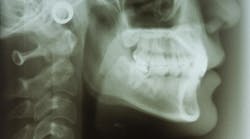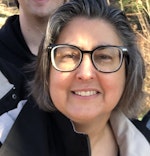Is the buzz with dental sleep medicine loud enough?
About 50 to 70 million Americans have sleep disorders, and one in three adults don’t get the uninterrupted sleep they need.1 Ninety million people in the US report snoring problems, yet 90% of obstructive sleep apnea (OSA) cases go undiagnosed.2
Your patients are waiting for you
The need for interdisciplinary care between medicine and dentistry is undisputed, and perhaps one of the most important areas is sleep disorders. Dental clinicians who work collaboratively with sleep physicians and specialists can help provide long-term, balanced care for patients who suffer from sleep apnea.3
DentistryIQ and its sister publication, Perio-Implant Advisory, have published some solid content on dental sleep medicine. Here’s what dental clinicians need to know.
You have no excuse
If you aren't involved in dental sleep medicine, why not? Here are five reasons why dental professionals aren’t screening for sleep apnea, and five reasons why they should be.
Get your team in place
If you are just getting started with dental sleep medicine, the first thing you need to do is get everyone on your team on board. Here’s where a “sleep champion” can help.
Dental sleep medicine takes a village
Don’t let obstacles get in the way
Do you want to provide oral appliance therapy in your practice but are feeling stuck? Those obstacles you face don’t have to seal your fate. Here are some resources and how to find help.
How to overcome diagnostic obstacles
Sleep is a systemic issue
Sleep has profound effects on systemic health, and stroke is just one example. Dr. Erin Elliott and Dr. Scott Froum look at an international study about the risks and why this should matter to dental professionals.
How sleep disorders affect the risk for stroke
What about the CPAP recall?
What happens when a trusted gold standard becomes a major risk? By now everyone has heard about the CPAP recall, but there’s a way to turn this into a positive.
Educating patients about sleep apnea
Do you ask your patients about their quality of sleep during preventive maintenance appointments? Share these OSA risks with them so they’ll know what to watch for that may be indicative of a bigger problem.
3 signs you might have sleep apnea
Testing, testing
Dental clinicians are perfectly positioned to spot signs of OSA in patients, and performing an airway assessment during routine dental appointments is an excellent time to do so. Learn what to look for during a clinical evaluation.
As dental professionals, you recommend appropriate dental treatment and oral hygiene techniques for your patients every day. Now you can point your patients in the right direction to find a sleep solution that fits their needs and their compliance.
Editor’s note: This article first appeared in Clinical Insights newsletter, a publication of the Endeavor Business Media Dental Group. Read more articles and subscribe.
References
- Sleep health. National Heart, Lung, and Blood Institute. Accessed March 6, 2024. https://www.nhlbi.nih.gov/health-topics/education-and-awareness/sleep-health
- Forbes J. 54 shocking sleep statistics and trends for 2024. Sleep Advisor. Updated February 13, 2024. Accessed March 6, 2024. https://www.sleepadvisor.org/sleep-statistics/
- Department of Research Services and Scientific Information, ADA Library and Archives. Sleep apnea (obstructive). American Dental Association. Updated January 9, 2023. Accessed March 6, 2024. https://www.ada.org/resources/ada-library/oral-health-topics/sleep-apnea-obstructive/
Vicki Cheeseman is an associate editor in Endeavor Business Media's Dental Group. She edits for Dental Economics, RDH, Perio-Implant Advisory, DentistryIQ, and Clinical Insights.








